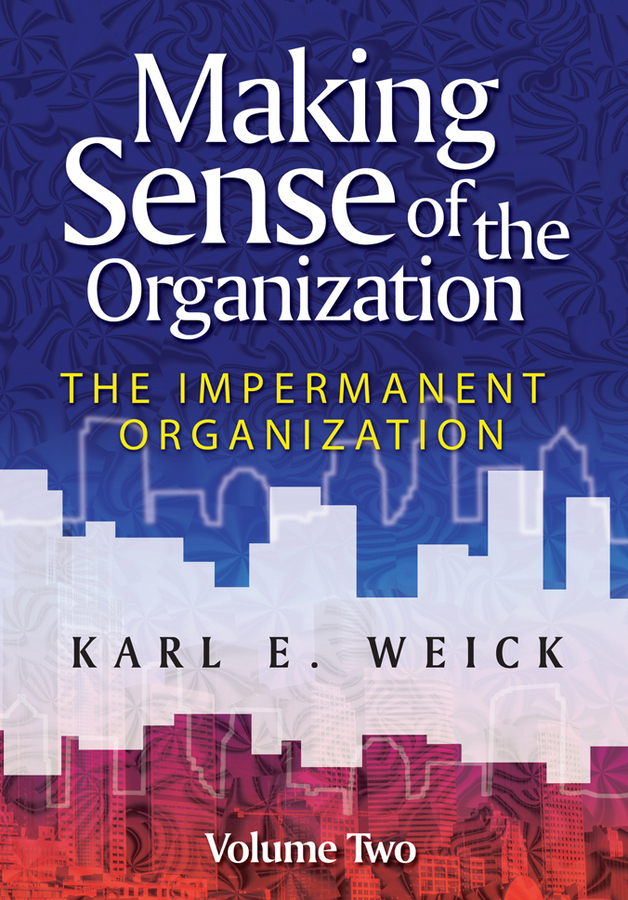Электронная книга: Karl Weick E. «Making Sense of the Organization, Volume 2. The Impermanent Organization»

|
Making Sense of the Organization elaborates on the influential idea that organizations are interpretation systems that scan, interpret, and learn. These selected essays represent a new approach to the way managers learn and act in response to their environment and the way organizational change evolves. Readers of this volume will find a wealth of examples and insights which go well beyond thinking and cognition to explain action. The author's ideas are at the forefront of our thinking on leadership, teams, and the management of change.“This book engages the puzzle of impermanence in organizing. Through rich examples, evocative language, artful literature citing, and imaginative connecting, Weick re-introduces core ideas and themes around attending, interpreting, acting and learning to unlock new insights about impermanent organizing. The wisdom in this book is timeless and timely. It prods scholars and managers of organizations to complicate their views of organizing in ways that enrich thought and action.” – Jane E. Dutton, Robert L. Kahn Distinguished University Professor, University of Michigan Издательство: "John Wiley&Sons Limited"
ISBN: 9780470748701 электронная книга Купить за 6243.79 руб и скачать на Litres |
Другие книги схожей тематики:
| Автор | Книга | Описание | Год | Цена | Тип книги |
|---|
См. также в других словарях:
Religious symbolism in the United States military — Insignias (left to right) for Christian, Muslim and Jewish chaplains are shown on the uniforms of three U.S. Navy chaplains, 1998. (These were the only insignias in use at that time.) Religious symbolism in the United States military includes the … Wikipedia
Buddhism — Buddh redirects here, for the Race Circuit, see Buddh International Circuit Standing Buddha. One of the earliest known representations of the Buddha, 1st 2nd century CE, Gandhara … Wikipedia
Latin America, history of — Introduction history of the region from the pre Columbian period and including colonization by the Spanish and Portuguese beginning in the 15th century, the 19th century wars of independence, and developments to the end of World War II.… … Universalium
Southeast Asian arts — Literary, performing, and visual arts of Myanmar (Burma), Thailand, Laos, Cambodia, Vietnam, Malaysia, Singapore, and the Philippines. The classical literatures of Southeast Asia can be divided into three major regions: the Sanskrit region of… … Universalium
Guru — For other uses, see Guru (disambiguation). A guru (Sanskrit: गुरु) is one who is regarded as having great knowledge, wisdom, and authority in a certain area, and who uses it to guide others (teacher). Other forms of manifestation of this… … Wikipedia
primitive culture — Introduction in the lexicon of early anthropologists, any of numerous societies characterized by features that may include lack of a written language, relative isolation, small population, relatively simple social institutions and… … Universalium
